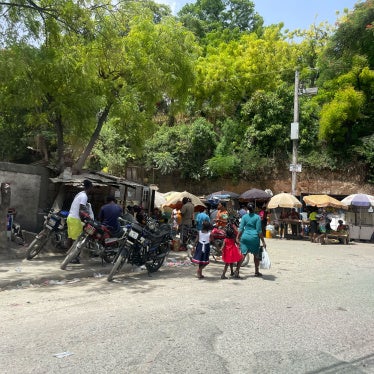A long-awaited report into policing in northern British Columbia confirms many of the critical shortcomings raised by rights groups in the past, but falls short of adequately addressing issues affecting Indigenous communities, and Indigenous women and girls specifically.
The report, the result of a three-year investigation by the Civilian Review and Complaints Commission (CRCC), began in May 2013, after concerns about abusive policing practices were raised by human rights and civil liberties organizations, including Human Rights Watch and the British Columbia Civil Liberties Association.
Just months prior to the review, Human Rights Watch released a report in partnership with Justice for Girls on ongoing police failures to protect Indigenous women and girls from violence and violent behavior by RCMP officers.
Indigenous women and girls interviewed by Human Rights Watch said RCMP personnel failed to protect them from violence by blaming them for the abuse they suffered, shaming them over alcohol or substance use, or threatening to arrest them for actions taken in self-defense when experiencing domestic violence. Despite widespread evidence of systemic racism and sexism experienced by Indigenous woman and girls, including victims of violence, the Commission’s report only “found room for improvement” in the RCMP’s response to domestic violence.
Abusive Policing and Failures in Protection of Indigenous Women and Girls in Northern British Columbia, Canada
While Human Rights Watch’s research documented serious allegations of abusive policing, including excessive use of force against girls, strip searches of women by male officers, and physical and sexual abuse, the report says that the investigation found no evidence of “systemic misconduct by RCMP members in northern British Columbia.”
Given the serious policing shortcomings the Commission highlighted, including failures to properly document missing persons’ investigations or appropriately conduct body and strip searches, this raises serious questions about the Commission’s threshold for systemic misconduct.
The report is an important first step, but the Commission’s new office in British Columbia should not see in it a reason to shy away from tackling systemic problems with the RCMP’s policing of Indigenous communities’ head on.











